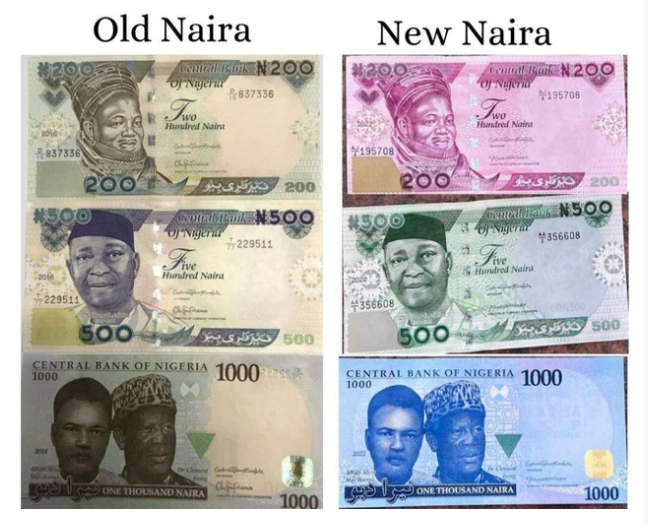Nigeria's Naira swap: President Buhari approves old N200 note usage until April
By Bukola Ogunsina, Abuja | chinadaily.com.cn | Updated: 2023-02-17 22:08

Nigerian President Muhammadu Buhari has announced that the old 200 Naira note will continue to be legal tender alongside the new ones up until April and old notes can be returned to Central Bank of Nigeria up until February.
Buhari made the announcement following unrest across the country as a result of scarcity of new Naira notes caused by the redesigning of the N200, N500 and N1000 notes respectively. The old notes, initially said to cease being legal tender after January 31, were later extended to be legal until February 10.
The Central Bank of Nigeria (CBN) took this unexpected big leap on October 26, when CBN's governor, Godwin Emefiele, made the announcement. The new 200, 500 and 1000 notes were launched by President Buhari, in November.
Emefiele noted that "N2.73 trillion ($4.9 billion) out of the N3.23 trillion ($5.7 billion) in circulation exists outside the vault of the commercial banks. Evidently, currency in circulation has more than doubled since 2015, rising from N1.46 trillion ($2.6 billion) in December 2015 to N3.23 trillion ($5.7 billion) as of September 2022."
Reasons for redesigning the currency include fighting counterfeit currencies, fighting kidnapping for ransom, hoarding of currencies and bringing value to the naira.
However, redesigning the higher currencies of the Naira note and its subsequent scarcity has attracted a lot of mixed feelings in Nigeria.
Hassan Gimba, publisher of online newspaper Neptune Prime, in Abuja, said the measure will curb inflation, appreciate Naira against the dollar and fight corruption.
A former director and civil servant at the Federal Ministry, John Adebayo, confirms that redesigning the Naira holds benefits.
"It may be difficult for Nigerians right now, but if we pause to think of the benefits, we will endure. This policy, in terms of redesigning and limiting withdrawals to a certain amount weekly, has reduced banditry and kidnappings, as these crimes are no longer rampant," he said.
However, some others say this policy has resulted in inconveniences to their life.
Chukwuebuka Paul, a businessman in Abuja, said he suspects some banks are selling new notes to only rich people, as there is a scarcity of them in some banks, and people are kept waiting in long lines to use the Automated Teller Machines (ATM) to withdraw money.
For Mary Aina, who works in the banking sector in Mushin, Lagos State, it had become a nightmare as nearly all the ATMs were not dispensing cash and there was no cash at all in the banks. "My sister was also complaining to me that her bank only gave her access to N5,000 only and in N50 notes. Right now, I cannot withdraw any money because there is no cash where I bank and the servers are down, which means I cannot even make an electronic transfer."
On Wednesday, there were riots in Edo, Delta and Oyo States among others. Some banks were attacked and burnt with ATMs destroyed.
A junior bank staff member in the Maitama area of Abuja, Morenike Osaro in an interview said that she fears for her life going to work because of the present situation. "I literally have to dress down when going to the office so that people will not know I work at the bank," she said.
The President of the Association of Senior Staff of Banks, Insurance and Financial Institutions, Oluwole Olusoji, on behalf of the organization revealed at a news conference in Lagos State that banks lost the sum of 5 billion Naira across states, following recent attacks and destruction of their facilities. He stated that 17 bank branches have been attacked so far during this crisis.
























